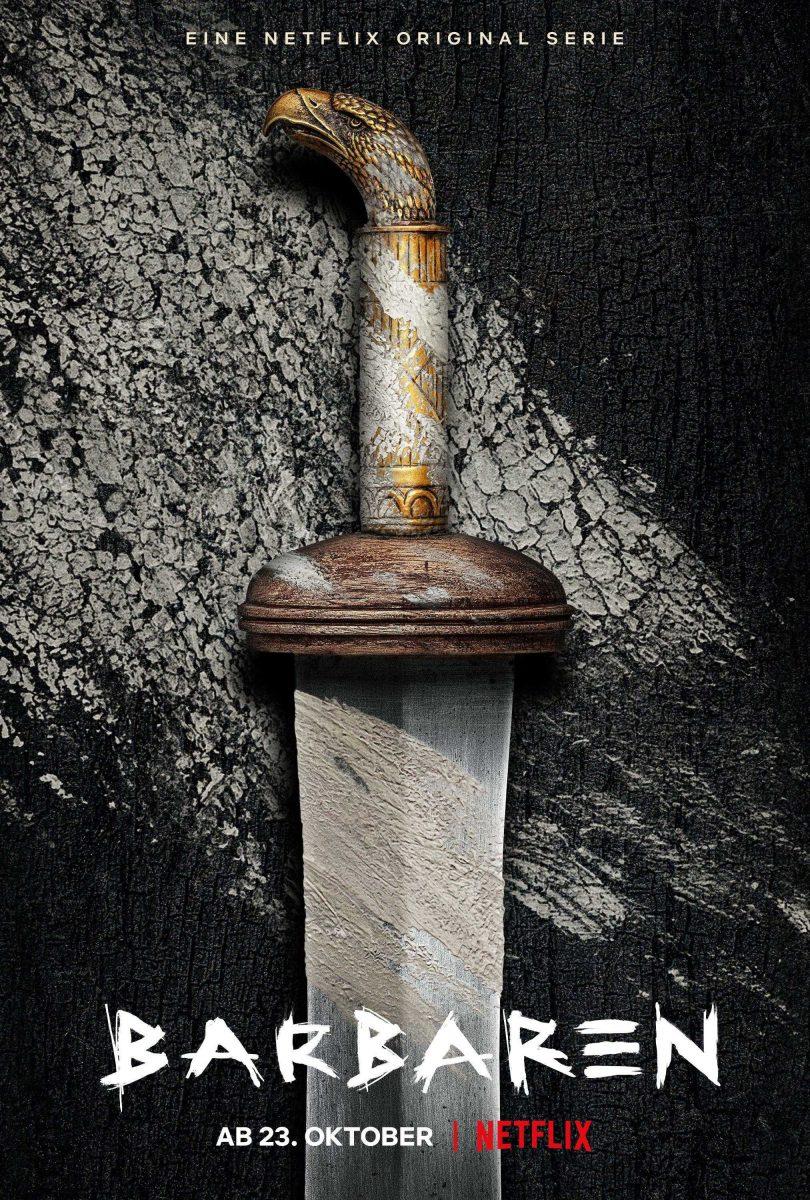Stars: 4/5
Netflix’s “Barbarians” is a step into the fantastic realm of storytelling wildly ignored. The complexity of real life manifested in history can shine through a creative lens into a visual medium.
Compelling narratives hide in the offhanded references proper history books rarely delve into, and even rarer do they come to the big screen in original Germanic and spoken Latin. Sometimes it takes a particularly obscure section of a page of a chapter in the history of a half-thousand-year empire to inspire a screenwriter to write. This trend typically sticks to WWI and WWII battles and individuals for whatever reason but occasionally extends to lesser known instances worth exploring.
In this case, the Battle of the Teutoburg Forest is no small-time battle stumbled upon by a lucky writer. To this day it proves one of the most successful and influential ambushes historically executed, and with built-in dramatic elements by nature of the battle.
It’s worth noting that the word “barbarian” is a way less eloquent Anglicization of the original “barbaren,” a moniker derived from the way Romans mocked the way their Germanic neighbors spoke. That’s like if Europeans called Americans “likelikes” for our generational tendency to mash the word into conversational lulls. So, in addition to a petition to drop barbarian from popular vernacular for barbaren, we should get ahead of the curve and own it before an imperial bully notices and gives us a derogatory name.
In today’s deluge of spinoffs, remasters, remakes, recasts and general intellectual recycling, it’s nice to see something not so familiar to the average viewer.
True-blooded history nerds undoubtedly cringe at inaccuracies and overdramatization, though. Exaggerated character motivations and actions make for broadly appealing cinema at the expense of the satisfying realism all historians seek in their media. The actual conflict around which the series is centered unfortunately occupies a measly portion of the last episode of the six-part series. In reality, the battle took four days of gruesome fighting, skirmishing and raiding that claimed over 15,000 Roman legionaries and countless others.
Arminius (Laurence Rupp) really coordinated the newly united Germanic tribes in an ambush on three Roman legions under the command of Varus (Gaetano Aronica) against the numerical odds. He did not, however, betray his demonstrated values and Varus, his cinematic lifelong father figure, to uphold a childhood pact and return to help his nativeborn people rebel against Roman subjugation.
Arminius — or Ari, as was his Germanic name before being taken as tribute for peace as and raised Roman — was actually part of a German auxiliary force under Varus. The show took intense creative liberties with their relationship. When his thorough defeat became evident, Varus did reportedly fall on his sword.
History speaks less to Thusnelda’s (Jeanne Goursaud) role in gathering the tribes and it whispers nothing of the fabricated Folkwin Wolfspeer (David Schütter) instigating and building the conflict as he did in the short series.
This truth boils down most of the series to speculative reimagination of what may have occurred, which is the unavoidable truth of this approach to storytelling. What happened all those moons ago was comprehensive and complicated and worth retelling centuries later. Unfortunately, humankind can only stab in the dark at what may have been with what is left and what the victors deemed worth writing for us.
Rev Rank: Netflix’s ‘Barbarians’ portrays history with major emphasis on the ‘story’
By Taner Morgan
November 12, 2020
Barbarians








